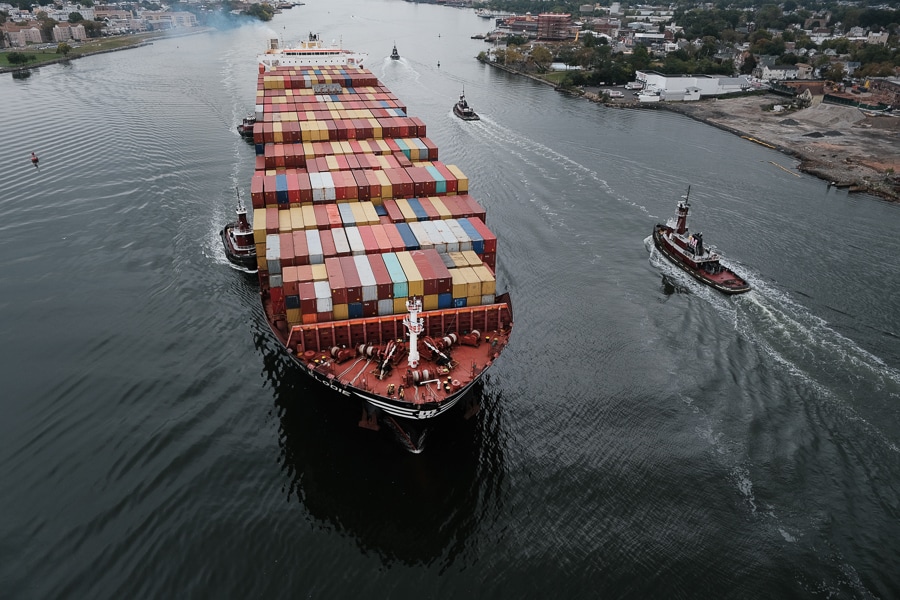
Minding the very visible hand of geopolitics in business
If you are one such manager, it is time to reconsider your worldview. If you are to continue building a business that is constantly competitive, innovative and well-managed, recognise that political movements that open markets to you and provide fresh business opportunities
Photo by Spencer Platt/Getty Images A cargo ship heads into port in Bayonne, New Jersey. As surging inflation and supply chain disruptions are disrupting global economic recovery, the Washington-based IMF has projected that global gross domestic product will grow by 5.9% this year — a 0.1 percentage point lower than its July estimate. The IMF made the lower forecast in its World Economic Outlook.
A cargo ship heads into port in Bayonne, New Jersey. As surging inflation and supply chain disruptions are disrupting global economic recovery, the Washington-based IMF has projected that global gross domestic product will grow by 5.9% this year — a 0.1 percentage point lower than its July estimate. The IMF made the lower forecast in its World Economic Outlook.
For most corporate managers, the thrust-and-parry of geopolitics have long made for entertaining water cooler chats at best. These managers leave politics to the politicians while they focus on market fundamentals to run their companies. Politics to them is a case of nice-to-know, as opposed to need-to-know for business operations.
If you are one such manager, it is time to reconsider your worldview. If you are to continue building a business that is constantly competitive, innovative and well-managed, recognise that political movements that open markets to you and provide fresh business opportunities might, in uncertain times, also shut your operations and cause opportunities to dry up. All activities of your company, from securing supplies, managing a global workforce, and serving customers to growing the business and responding to climate change can be challenged by geopolitical tensions, nationalist rumblings, and even domestic policies of foreign governments. For example, a September 2019 study by financial intelligence firm Moody’s Analytics found that the worsening United States-China trade war has led nearly 300,000 Americans to lose their jobs in just one year, as well as an estimated 0.3 per cent drop in real US GDP. The study also cautioned that this trade war was entering “a dangerous new phase”. Other observers concur that continuing conflict between the US-China might spell economic disaster.
The Covid-19 pandemic, and the pursuant responses, has exacerbated some of these challenges. Supply chain disruptions are affecting a wide range of goods, from computer chips and medicines to meat and lumber. Meanwhile, mandatory telecommuting amid travel bans has worn the world’s workforce down.
There seems little respite because consumer prices are soaring even as policymakers everywhere try to balance the trade-off between spurring economic growth and spiralling inflation. Add to that the increased scrutiny of foreign investments and mergers and acquisitions by market regulators around the world, all of which is complicating the entry and expansion of companies into new markets.







